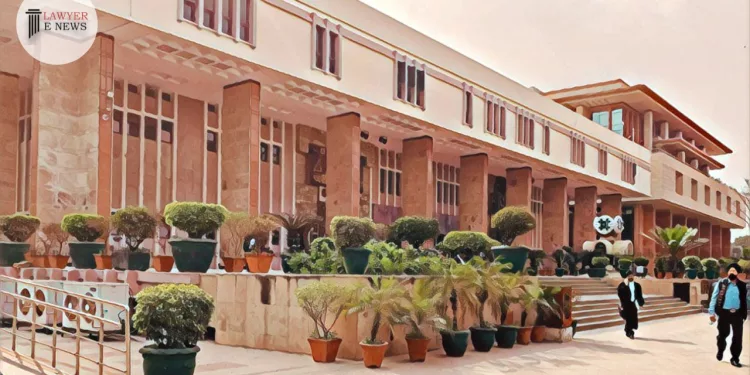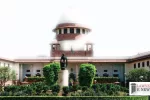Accountability in Public Service Must Be Upheld: Delhi High Court on Pension Cut for Former BRO Officer

Court dismisses appeal against 10% pension cut for one year, emphasizing the legitimacy of delayed disciplinary proceedings and the necessity of maintaining procedural integrity.
The Delhi High Court has dismissed a petition filed by R.K. Agarwal, a retired Assistant Executive Engineer of the Border Roads Organization (BRO), challenging the imposition of a 10% pension cut for one year. The judgment, delivered by Justices V. Kameswar Rao and Saurabh Banerjee, upheld the disciplinary actions taken against Agarwal for his involvement in the mismanagement and illegal sale of cement. The court emphasized the legitimacy of the prolonged disciplinary process and the necessity of upholding accountability and procedural integrity in public service.
R.K. Agarwal joined the BRO as an Assistant Executive Engineer in May 1985. During his tenure, he faced two sets of disciplinary charges. The first, issued in August 1991, related to the submission of a false travel allowance claim. The second, issued in January 1992, accused him of creating surplus stocks of cement, misreporting quantities, selling cement to private individuals for personal gain, and threatening subordinates.
In July 1998, Agarwal was dismissed from service due to the first set of charges. However, in 2012, the Delhi High Court ordered his reinstatement with all consequential benefits. Following his reinstatement in 2013, the BRO resumed the disciplinary proceedings related to the second set of charges. Despite retiring in April 2016, Agarwal was subsequently penalized with a 10% pension cut for one year, a decision he contested.
The court addressed the issue of whether the disciplinary proceedings, which were resumed after a significant delay, were valid. It concluded that the delay was justified due to the initial dismissal and subsequent reinstatement of Agarwal. The court stated, “The revival of the proceedings following the reinstatement was in accordance with legal principles, ensuring that disciplinary actions are not rendered ineffective by mere passage of time.”
In examining the disciplinary proceedings, the court found that Agarwal had failed to maintain accurate records and report the illegal sale of cement, thus demonstrating a lack of discipline and accountability. The court noted, “The petitioner’s awareness and non-disclosure of surplus cement and its illegal sale underscore a breach of duty that warranted disciplinary action.”
The judgment highlighted the court’s reliance on the findings of the Inquiry Officer (I.O.), the Disciplinary Authority, and the Central Vigilance Commission (CVC). It stated, “The Inquiry Officer’s findings, supported by witness testimonies, clearly established the petitioner’s failure to supervise and report misconduct. The disciplinary authority’s disagreement note, based on these findings, justifies the penalty imposed.”
Justice V. Kameswar Rao remarked, “The disciplinary process, though delayed, adhered to procedural requirements, ensuring that accountability in public service is upheld. The petitioner’s misconduct warranted a proportionate penalty, reflecting the seriousness of the charges.”
The Delhi High Court’s dismissal of R.K. Agarwal’s petition reinforces the importance of accountability and procedural integrity in public service. By upholding the disciplinary actions, the judgment sends a clear message that misconduct and procedural violations, even when revealed after significant delays, will not be tolerated. This decision underscores the judiciary’s role in maintaining the standards of public administration and ensuring justice is served.
Date of Decision: April 16, 2024
R.K. Agarwal vs. Union of India & Ors.






